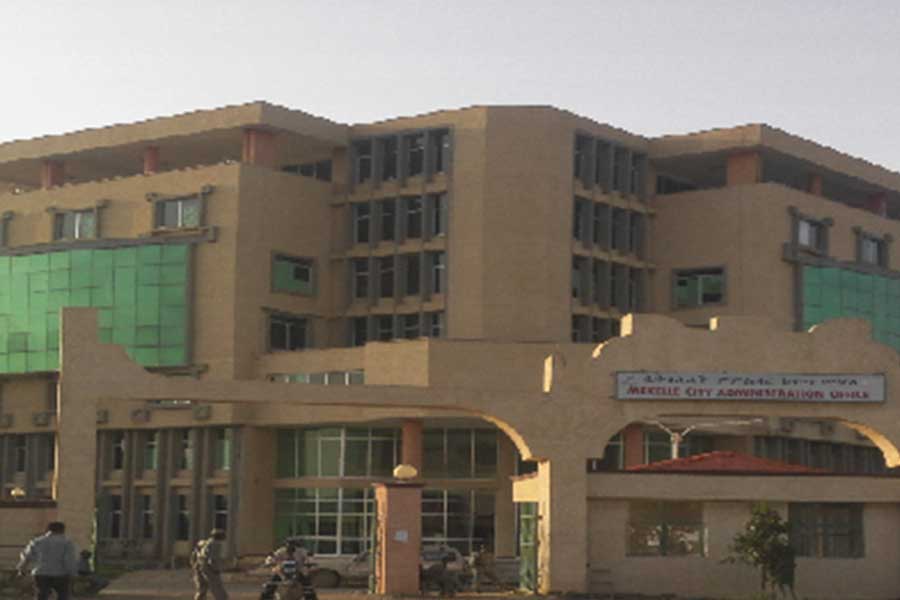
Obituary | Jan 16,2021
May 1 , 2020
By Christian Tesfaye (
Christian Tesfaye (christian.tesfaye@addisfortune.net) is a researcher and Fortune's Deputy Editor-in-Chief whose interests run amok in the directions of political thought, markets, society and pop culture.
)
Every major incident leaves behind an impact that far outlives it. A century ago, Ethiopia was hit by the Spanish Flu, a respiratory illness that is estimated to have taken the lives of 50 million people around the world.
The extent of the devastation of the disease in Ethiopia is not clear, but the literature of the era attests that it overwhelmed Addis Abeba. A third of the population of the city is said to have perished and the crown prince at the time, Ras Teferai, was purportedly diagnosed with the disease.
The pandemic may have led to the passing of what was perhaps the first public health measure in Ethiopia, which told people to take out their rubbish and burn it. To this day, on a day in Hidar(a month of the Ethiopian calendar that lies partly in November and partly in December), residents of Addis Abeba still do this.
For a pandemic believed to have killed so many, it is likely that the burning of rubbish on a specified day is not the only legacy. There are most certainly others that went undocumented like so much else of our history.
What may change in Ethiopian society following the COVID-19 pandemic?
Some of the changes are obvious. We should take personal hygiene more seriously, and disinfectants would be a common household good, at least among the middle class.
We should also not be worshipping at the altar of public gatherings. We have learned that with some more experience, we would make decent cooks; that it is possible to work out and work at home with almost the same level of efficiency and consistency; that home entertainment is not so terrible; and, most importantly, by staying home, we save a lot of money.
Who knew one could buy a small-sized bottle of vodka at the supermarket for the same price it would cost to buy two double-shots of the same brand of vodka at most of Bole’s bars?
But the biggest impact of the pandemic may be on our behaviour, especially when it comes to our view of the state and social relationships.
Ethiopia has been a country where, more than anything else, the society has always trumped the individual. The latter only made sense in relation to the former. A wedding was not considered a wedding until almost every relative and friend was invited. A funeral was supposedly only as good as the loudness of the wails and the chest-thumping involved.
This has resulted in islands of largely strong social ties. Each one is diverse as a result of lingo-cultural and religious differences but solidly held together. They are pockets of communities, with members constantly looking out for each other and deeply intertwined economically, culturally and spiritually.
Members in their respective communities have persistently looked toward one another in times of personal challenges, when one had financial problems or merely felt taken advantage of. Without society, the individual has been powerless.
Who needs a marriage counselor when one has priests and elders? Who needs a bank when there is Iqub?
The modernisation of the Ethiopian state has certainly changed a great deal. In the past century, the increasing institutionalisation of economic exchange and the administration of justice has chipped away at the importance of social (cultural and religious) institutions, frustrating the bond between individuals. The bureaucracy, financial instruments and the police - through which the long arms of the state are stretched - have become facts of life.
True, a couple may still seek the approval of each other’s kin to go ahead with the marriage, but they know at the back of their minds that it is that piece of legal paper they sign that is the actual seal of legitimacy.
The Novel Coronavirus (COVID-19) pandemic has pushed this reality one step further. It has made the idea of government indispensable. It was not social institutions that answered the call for an organised response to the outbreak but the state. It used its awesome powers, organised through the bureaucracy, the police, financial instruments and the media to create awareness of the illness, identify weaknesses, mobilise resources and enforce restrictions in its fight against the outbreak.
The social instruments - informal, disorganised and with none of the coercive powers of the state - have been more or less unnecessary. The individual, as in the West, was able to depend on the state as its sole saviour.
No doubt, communities have helped with enforcing standards of personal hygiene and creating awareness of the disease, but the state had been the organising force behind them.
Perhaps the least discussed but most fascinating aspect of this was the banning of all forms of public gatherings. People have not insisted on attending funeral services in large numbers, despite the importance attached to them in many of the cultures of Ethiopia.
When churches and mosques were closed, I assumed there would be protests and riots. But, despite some exceptions, people largely stayed away from these places of worship. They did not insist that no harm would come to them while they were in as sacred a place as the church or mosque.
The state told them that attending services in these places of worship could lead to contracting a deadly illness, and the public took the state’s word for it. This is an exceptional change in individual behaviour in Ethiopian society. It is an example of the increasing currency of the state in the hearts of the public, and it is coming at the expense of cultural and religious institutions.
PUBLISHED ON
May 01,2020 [ VOL
21 , NO
1044]

Obituary | Jan 16,2021

Fortune News | Jan 01,2022

Fortune News | Aug 22,2020

Covid-19 | Apr 11,2020

News Analysis | Aug 28,2021

My Opinion | Jun 15,2019

Radar | Dec 05,2020

Fortune News | Jan 05,2019

Radar | May 07,2022

Radar | Nov 28,2020

Dec 22 , 2024 . By TIZITA SHEWAFERAW
Charged with transforming colossal state-owned enterprises into modern and competitiv...

Aug 18 , 2024 . By AKSAH ITALO
Although predictable Yonas Zerihun's job in the ride-hailing service is not immune to...

Jul 28 , 2024 . By TIZITA SHEWAFERAW
Unhabitual, perhaps too many, Samuel Gebreyohannes, 38, used to occasionally enjoy a couple of beers at breakfast. However, he recently swit...

Jul 13 , 2024 . By AKSAH ITALO
Investors who rely on tractors, trucks, and field vehicles for commuting, transporting commodities, and f...

Oct 18 , 2025
The political establishment, notably the ruling party and its top brass, has become p...

Oct 11 , 2025
Ladislas Farago, a roving Associated Press (AP) correspondent, arrived in Ethiopia in...

Oct 4 , 2025
Eyob Tekalegn (PhD) had been in the Governor's chair for only weeks when, on Septembe...

Sep 27 , 2025
Four years into an experiment with “shock therapy” in education, the national moo...